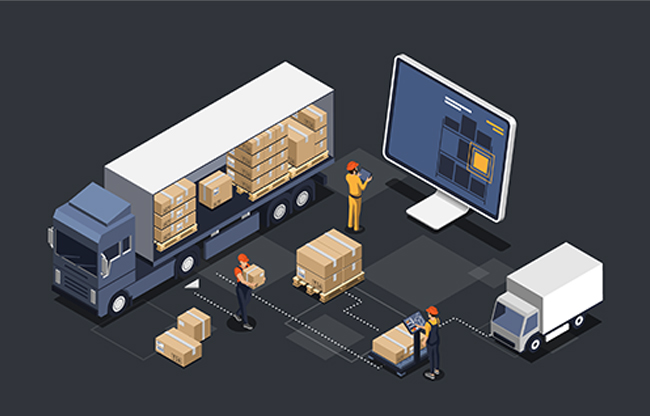The trucking industry is one of the largest and growing industries. Trucking accounting is an important part of the business. Those who are familiar with accounting are aware that the trucking industry is a complex and highly specialized field. In this blog post, we’ll give a brief overview of trucking accounting and how it differs from traditional accounting. We’ll also discuss some of the challenges that trucking companies face when it comes to bookkeeping and financial reporting.
Contents
What Is Trucking Accounting? How Is It Different from Regular Accounting?
Trucking accounting is a specialized form of accounting that focuses on the unique needs of trucking businesses. Unlike regular accounting, trucking accounting takes into account the specific expenses associated with operating a fleet of trucks, such as fuel costs, maintenance fees, and license fees.
In addition, trucking accounting also takes into account the revenue generated by hauling freight. As a result, trucking accounting is an essential tool for any business that relies on trucks to transport goods. Without accurate trucking accounting, it would be difficult to properly manage the finances of a trucking business.
Key Financial Statements for A Trucking Company
A trucking company has several key financial statements that are important to its operation and success. The balance sheet is a statement that lists the company’s assets, liabilities, and equity. The income statement shows the company’s revenue and expenses for a given period. The cash flow statement tracks the company’s inflow and outflow of cash.
Finally, the statement of changes in stockholders’ equity shows how the company’s equity has changed over time. These financial statements give insights into the company’s finances and help to guide decision-making. Without them, it would be difficult to track the company’s progress and ensure its long-term viability.
Unique Expenses Associated with Trucking Accounting
Trucking accounting services can be a complex and challenging task, as many unique expenses must be considered. For example, fuel costs can fluctuate significantly, depending on the price of gasoline and the efficiency of the truck. Maintenance and repairs can also be costly, as trucks require regular tune-ups and often need to replace parts more frequently than other vehicles.
In addition, several regulatory fees must be paid, such as tolls and licenses. As a result, it is important to carefully track all expenses to ensure that the business is profitable.
How Can Trucking Accounting Help Improve the Bottom Line?
Trucking accounting can help improve the bottom line in several ways.
- First, it can help us track our income and expenses so that we can see where our money is going. This information can be used to make changes to our business that will save money.
- Second, trucking accounting can help us keep track of the customers and invoices. This information can be used to follow up with customers who have not paid their invoices or to offer discounts to customers who pay on time.
- Finally, trucking accounting can help us create financial reports that will show us how our business is performing. This information can be used to make changes to our business that will increase our profits.
Best Practices for Trucking Accounting
Trucking accounting can be a complex and time-consuming task. To keep track of expenses and income, truckers need to maintain accurate records of their trips, fuel purchases, and maintenance costs. Fortunately, there are a few simple best practices that can help make the task of trucking accounting more manageable.
First, create a system for tracking expenses. This can be as simple as keeping a folder in the cab for receipts or using an app to track mileage and fuel costs. Second, set aside time each week to review the records and update the books. This will help ensure that we always have accurate information on hand.
Finally, don’t be afraid to ask for help from an accountant or bookkeeper if required. Trucking accounting can be complex, but by following these simple best practices, it doesn’t have to be overwhelming.
How To Make Trucking Accounting Compliant with The Law?
Any business owner knows that compliance with the law is essential to avoid penalties and fines. When it comes to outsourced bookkeeping services, there are a few key things to keep in mind to ensure compliance.
First, all income and expenses must be accurately recorded. This includes documenting mileage, fuel purchases, and repairs. Secondly, it is important to keep track of receipts and invoices to deduct expenses come tax time.
Finally, it is crucial to file all required paperwork on time, including federal and state tax returns. By following these simple guidelines, trucking accounting can be made much simpler – and more compliant with the law.
When To Hire an Accountant?
Being a trucking business owner, it’s important to have a good accountant on the team. A trucking accountant can help us with all aspects of our financial planning and management, from bookkeeping to taxes. But how do we know if we need to hire a trucking accountant? Here are some red flags to look out for:
- We are not keeping track of your expenses.
- We’re not sure how much we’re spending on fuel or maintenance.
- We’re not sure how much we owe in taxes.
- We’re not sure what our depreciation schedule is.
- We’re not sure how to file our quarterly IFTA reports.
The Conclusion
Trucking accounting is a process that is specific to the trucking industry. The goal of this overview was to introduce some of the key concepts involved in trucking accounting so that we can be better prepared to work with an accountant who specializes in this area. If we own a trucking business the need for accounting cannot be ignored.

